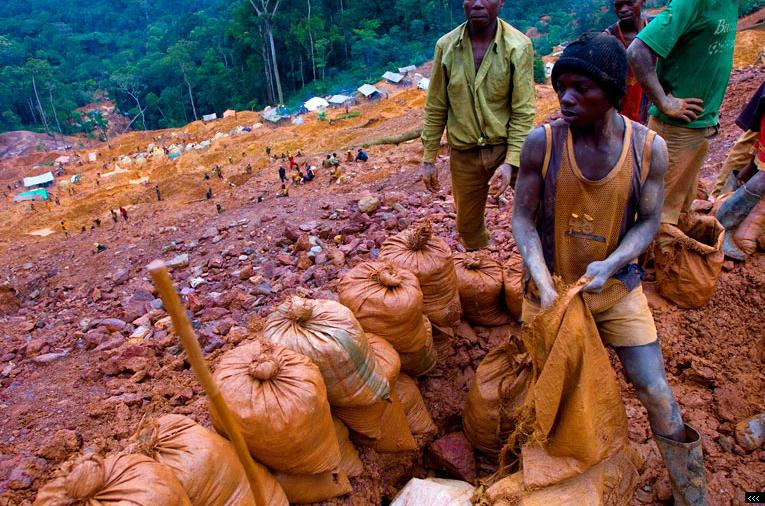
Workshop at ‘Power of Congo’ event
Metals like tin and coltan, dug from mines in the Democratic Republic of Congo, fuel conflict in the east of the country. These metals also fuel the consumer electronics industry, ending up in components of mobile phones and laptops. During the event ‘The power of Congo’, SOMO/MakeITFair and Niza explained Congo’s ‘resource curse’ and what politicians, business and consumers can do to end the negative effects of mining for electronic products.
Metals like tin and coltan, dug from mines in the Democratic Republic of Congo, fuel conflict in the east of the country. These metals also fuel the consumer electronics industry, ending up in components of mobile phones and laptops. During the event ‘The power of Congo’, SOMO/MakeITFair and Niza explained Congo’s ‘resource curse’ and what politicians, business and consumers can do to end the negative effects of mining for electronic products.
The contrasts in Congo, the third biggest African country, are big. Only two countries rank lower than Congo on the UN Human Development Index, the life expectancy is 46 and one in five children dies before the age of five. In contrast with the lack of basic needs for the majority of Congolese citizens, the country knows extraordinary mineral wealth. Copper, cobalt, tin, gold, diamonds are some of the riches in the Congolese soil. But instead of improving livelihoods, the raw materials are used by different armies and militias in the region to finance their operations.
According to Nathalie Ankersmit from Niza, the artisan miners in the Kivu province who make long days under the ground digging for casserite, or tin oxide, barely make a living. “Soldiers of the Congolese army grab the minerals at gunpoint. They often force porters to carry bags of 50 kilos to the nearest road, where the tin oxide is sold to traders.”
The casserite eventually leaves Africa and ends up in factories in Asia that produce components of electronics. These components are bought by mobile phone companies, which assemble the parts into the newest mobile gadgets. “The initial response of the electronics industry, when confronted with these facts, was that it was not possible to trace the origin of metals used in electronics”, says SOMO researcher Tim Steinweg.
“However, research from the MakeITFair campaign*, in which SOMO takes part, was able to map the casserite chain”, Steinweg explains, “so there’s no reason why companies would not be able to do that as well. The industry as a whole is such a big consumer of the mineral that they also have the bargaining power to influence what’s going in the early stages of mineral production.”
A study in 2008 from the Electronic Industry Citizenship Coalition (EICC), a sustainability initiative of the electronics industry, reiterated several of the findings from the MakeITFair research, and concluded with a number of recommendations for the industry. In its plans for 2009, the EICC has stated its intention to publish a ‘Statement of Concern’ and will work towards a transparent supply chain.
Steinweg: “SOMO is coordinating the MakeITFair project, to inform young people across Europe about the labor abuses and environmental problems connected to the full supply chain of the electronics industry. Consumers can hold big brand electronics companies to account and ask them to take responsibility for issues at the bottom of their supply chain.”
For more information:
Watch Jonathan Miller from Channel 4 report on Congo’s Tin Soldiers(opens in new window) . (Click on ‘Watch the report’)
Related news
-

-
Chain of consequences Published on:
 Joshua RosenzweigPosted in category:Publication
Joshua RosenzweigPosted in category:Publication Joshua Rosenzweig
Joshua Rosenzweig
-



